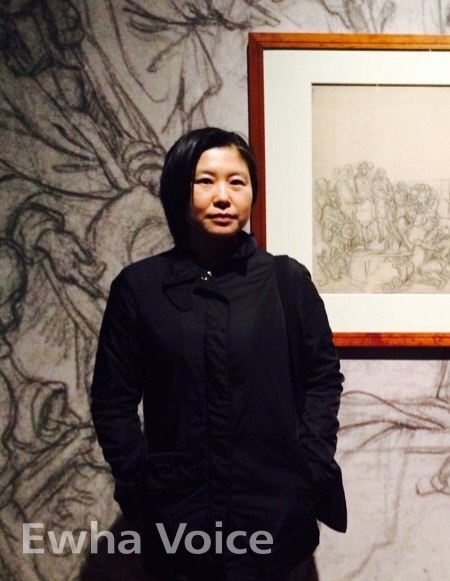
The problem of gender inequality has long remained unresolved in the Korean film industry. A report published by the Korean Film Council (KOFIC) in 2018 states that out of 77 Korean commercial films, 28 percent were written by women, and 24 percent starred women, while only 8 percent were produced by female directors, and a mere 2.6 percent were filmed by female directors of photography. In other words, films in which womenparticipated as key figures did not exceed 30 percent in any area, most noticeably in commercial films. By occupation, the rates of women who wrote scenarios or starred in films were relatively high, but the shooting field showed a startlingly low participation rate.
To solve this gender inequality issue prevalent in the Korean film industry, Women In Film in Korea (WIFK) has been making great efforts for over 20 years. Founded in 2000, WIFK has existed as a consultative group of females working to improve and protect women’s rights and interests in the industry.
Kim Seon-ah, the CEO of WIFK, shared her thoughts on the ongoing issue. Kim graduated from Ewha and is the current head of WIFK and a professor at Dankook University.
Kim pointed out that there is still deeply-rooted prejudice against women in Korea and a misperception that females are incapable of leading big projects like genre films, especially when it comes to action movies. In the case of main characters, the history of female lead films is bound to be short since male characters have always dominated films, a tendency that continues to this day. Currently, as a result, female narratives and directors are the minority in the industry.
“Until the early 2000s since WIFK started, the condition of the Korean film industry was very poor from a feminist point of view,” Kim stated. “Even after the #MeToo Movement shook the world in 2018, gender inequality in the film industry still has a long way to go. Therefore, it is our utmost priority to reduce and eventually eradicate gender inequality in this field. We only exist for this.”
The major tasks of WIFK include sexual violence prevention education in the film industry, victim support projects, diversity education, and the Women In Film Festival. They are leading education to prevent and reduce sexual violence in the industry and have recently expanded their scope to series aired on OTT platforms.
As mentioned earlier, unlike other areas where women have secured their presence to some degree, the participation rate of women in the shooting field is appreciably low. Film directing has traditionally been a male-dominated area, making it more difficult for women to enter. To counter this tendency, there is an urgent need to foster more female photography directors.
For this, WIFK has been working hard focusing on nurturing female photography directors by hosting filming workshops every year. Kim stressed the importance of photography directors, offering the analogy that if a director is the captain on a cruise, a photography director is the engineer who pilots and operates the ship. By holding workshops steadily, WIFK is helping women to shatter the glass ceiling and achieve positions in formerly inaccessible areas of the film industry.
At one time, Kim was surprised by the number of applicants who applied for the workshop. According to Kim, the workshop was originally intended for 20 people, but 63 people applied in just three days. She believes this means that the demand far exceeds the current number of female photography directors, showing that women have long been ready to take a more active role in this area.
Calling the establishment of DeunDeun the biggest achievement of the recent work of WIFK, Kim expressed her pride in a confident voice. DeunDeun is a center officially opened in 2018 for gender equality in the Korean film industry, with the support of KOFIC. She feels a sense of pride in that she believes DeunDeun is an innovative and unique organization born in Korea that other countries do not have.
As the number and position of female writers and directors in the industry are gradually growing, Kim emphasized that it is necessary to improve its situation by constantly talking about such problems.
“It is up to us to bring about these changes that we are all waiting for,” she said. “We will continue to speak up to let the world know, whether anyone gives us attention and listens or not.”
Kim also expressed her ambition that WIFK plans to keep the festival going, expand the workshop, and improve the operations of DeunDeun, which is just what they have done so far.
“Our ultimate goal is to reach the level where gender equality finally lands on the ground of the film industry in Korea,” she concluded resolutely.

